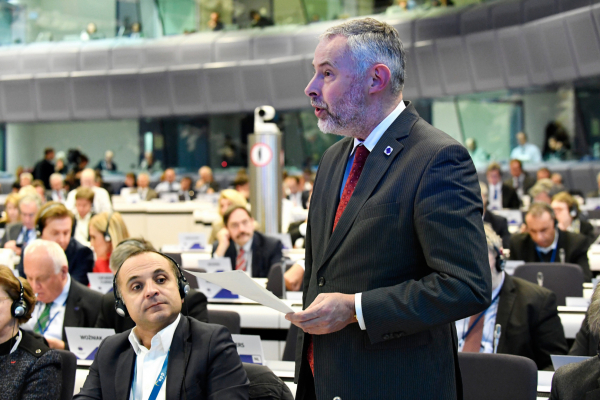Rob Jonkman: No to EU tax

"We must not fall into the trap of using the current debate over the future of our economic and monetary affairs to create an EU system where we would be trying to bribe citizens with their own money. Creating new taxes at EU level will lead to more criticism of centralisation of powers in Brussels", said ECR Group President Rob Jonkman (Alderman and Member of the Executive Council of Opsterland, The Netherlands) in a plenary debate with Commissioner Pierre Moscovici.
The debate with the EU Commissioner for Economic and Financial Affairs took place in December 2017. Mr Jonkman said that savings needed to be made so that politicians did not have to ask citizens for new taxes at EU level. "We hear that the European Commission is planning to introduce an EU tax on financial transactions and an EU carbon tax. This may sound good on paper, but we all know that such taxes will impact some Member States disproportionately. This would unavoidably lead to more Euroscepticism."
"The same applies to the idea of creating a post of a European Minister of Economy and Finance. It will centralise the system, discourage competition among euro area countries, and sideline non-euro area Members. This is not a step in the right direction."
Speaking about possible solutions, the ECR President said: "Taking action only in a selected number of policy areas which are of added value to citizens will bring us savings. We also need structural reforms and we need to allow our cities and regions the room for fiscal policy competition."
Mr Jonkman reiterated this message during the CoR plenary debate with First Vice-President of the European Commission Frans Timmermans, which took place in February 2018. He highlighted that the Commission's proposals of greater centralization of economic and fiscal powers in a system where local and regional authorities are not treated as partners are not in-line with the principle of subsidiarity.

